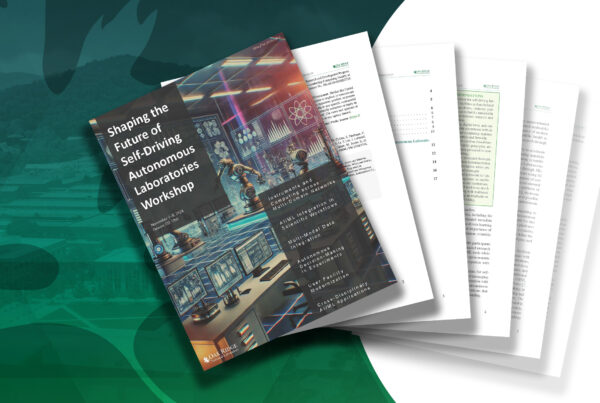A new program offers the best of both worlds for researchers seeking computing allocations at the Oak Ridge Leadership Computing Facility (OLCF). For the first time, the OLCF Quantum-Classical Hybrid User Program will enable scientists to employ both quantum and classical resources for their approved research projects.
The hybrid program will place an emphasis on projects that seek to compare quantum and classical computing approaches, algorithms, and implementations. Additionally, projects that use quantum computing to attack parts of a larger problem while also using classical computing to attack other parts of that same problem, are being sought by the program.
“The combined capability we have in the form of OLCF’s HPC resources and those in our Quantum Computer User Program (QCUP) is essentially unequaled. We are looking for hybrid projects that can use these capabilities to chart a future for quantum-accelerated HPC [high-performance computing],” said Bronson Messer, the OLCF’s director of science.
Researchers interested in applying for the hybrid allocations must submit proposals to two different programs:
- Quantum computer resources will be made available through the OLCF’s QCUP, which awards compute time on quantum systems owned by companies such as IBM, Rigetti Computing, and Quantinuum.
- Classical computer resources will be made available through the OLCF’s Director’s Discretionary (DD) program, which awards compute time on OLCF’s classical HPC systems.
Each proposal should refer to the corresponding proposal in the other program. Proposals to the hybrid program will be evaluated, reviewed, and allocated together on a rotating basis—there are no deadlines.
The applications for both QCUP and DD can be found at the myOLCF user site:
my.olcf.ornl.gov/project-application-new
The OLCF, a US Department of Energy (DOE) Office of Science user facility at the DOE’s Oak Ridge National Laboratory (ORNL), awards compute time on leadership-class systems to researchers around the world for open-science projects. The OLCF’s primary systems are the 200-petaflop Summit and the new exascale-class Frontier. And with QCUP, the OLCF also offers researchers a sneak peek into the future of scientific discovery on new quantum systems being developed by outside companies.
These programs tackle the most computationally complex problems from diverse scientific domains such as materials sciences, earth sciences, astrophysics, and biology.
The newly installed Frontier quickly earned the title of the world’s fastest supercomputer in May’s TOP500 list, with 1.1 exaflops of performance. The system is the first to achieve exascale—a threshold of a quintillion double-precision calculations per second and an unprecedented level of computing performance. Frontier is expected to be available to users early next year.
The OLCF’s previous top-ranked supercomputer, Summit, is still busy breaking research barriers. Just last year, Summit modeled an aerosolized SARS-CoV-2 viral particle for the first time by placing it in a 1.05-billion-atom system, one of the largest biochemical systems ever simulated at the atomic level.
The QCUP program has allowed researchers to conduct some of the earliest computational science on quantum systems. Despite the computing technology’s infancy, QCUP has nevertheless achieved impressive results, from capturing part of a calculation of two protons colliding to developing an artificial intelligence system for identifying and diagnosing faults in electrical power grids.
“The combination of classical HPC and quantum computing has the potential to be a huge step forward for understanding nature with computation. We are counting on the imagination of our users to help fulfill this potential,” Messer said.
UT-Battelle LLC manages Oak Ridge National Laboratory for DOE’s Office of Science, the single largest supporter of basic research in the physical sciences in the United States. DOE’s Office of Science is working to address some of the most pressing challenges of our time. For more information, visit https://energy.gov/science.






